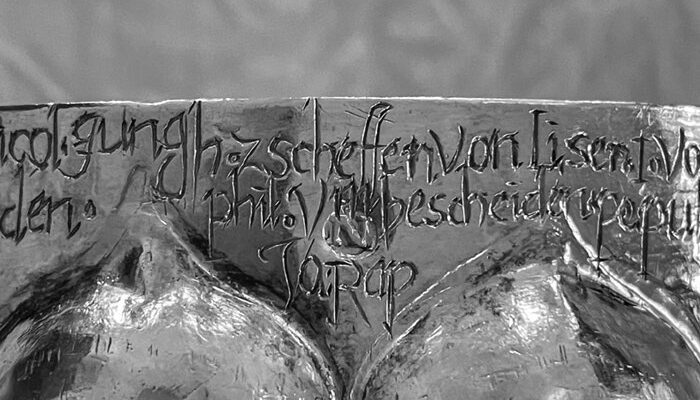
Crafting the Reformation
Artisanal knowledge, material culture, and religious practice in early modern Europe
Supervisory Team: Dr Suzanna Ivanič (Kent), Dr Hannah Murphy (King’s)
Based at: Kent
KOM Theme: B – Embodied Knowledge; also connects to A – Technologies of Knowledge
Artisans were key players in the changing confessional cultures of early modern Europe. They created devotional objects, crafted religious sensory regimes and developed confessional iconographies. To do so, they worked adeptly across material, visual and textual realms. Scholarly focus has largely been on patronage and consumption – looking at the way in which individuals and communities used objects to express or practise their beliefs. Major studies of figures such as Albrecht Dürer or Lucas Cranach have situated them within confessional production, or focused on the centrality of their religious belief to their production. Much less attention has been paid to artisanal culture more broadly – to craftsmen, guilds, craft practices, or even the nascent art market – in shaping emerging, highly volatile and plural religious repertoires of post-Reformation Europe.
In recent years, scholarly focus on material culture has revealed the ways in which devotional regimes made use of and relied on objects. In a very different field, a rich body of work now exists on the importance and value of ‘artisanal epistemology’ to natural knowledge in the early modern period. Building on this scholarship and crossing disciplinary fields, this PhD project asks how the embodied knowledge of artisans and craft makers shaped changing religious cultures in early modern Europe and how craft knowledge in material and visual realms worked in dialogue with the textual knowledge that was needed for creating objects of devotion and for managing trade. This project will ask: How did artisans read, consume, and respond to reformation ideas? How did those with material knowledge think about the world, and what metaphors did they use to navigate malleability and change? How did artisans order their knowledge, record their work, and organise their business? How did these changing and embodied orders of knowledge intersect with textual production?
This PhD project involves a novel way of approaching a longstanding and traditional field of early modern European history: the religious Reformations. Examining a wide range of sources, such as guild records, books of secrets, inventories, and material and visual evidence to examine what artisans read, how they ordered their knowledge, and how they organised their business, this research will ask how artisans contributed to confessionalisation. Shaping religious life by necessity engages questions of gender, family life, practice, identity and race, while artisanal practice engages the environment, ecology, and landscape, and so the PhD will intersect with and connect to these questions which continue to shape the field.
This PhD is open to applicants with a background in early modern European studies, broadly conceived. Interested applicants might have a degree in history, art history, history of science, languages, literature, or other relevant subjects. This studentship is open to those working on early modern Britain, or the Americas, but preference may be given to candidates with reading knowledge of more than one language (particularly German and Slavic languages) or a demonstrable willingness to use the training fund to improve facility with languages, and to those wishing to study regions in central Europe.